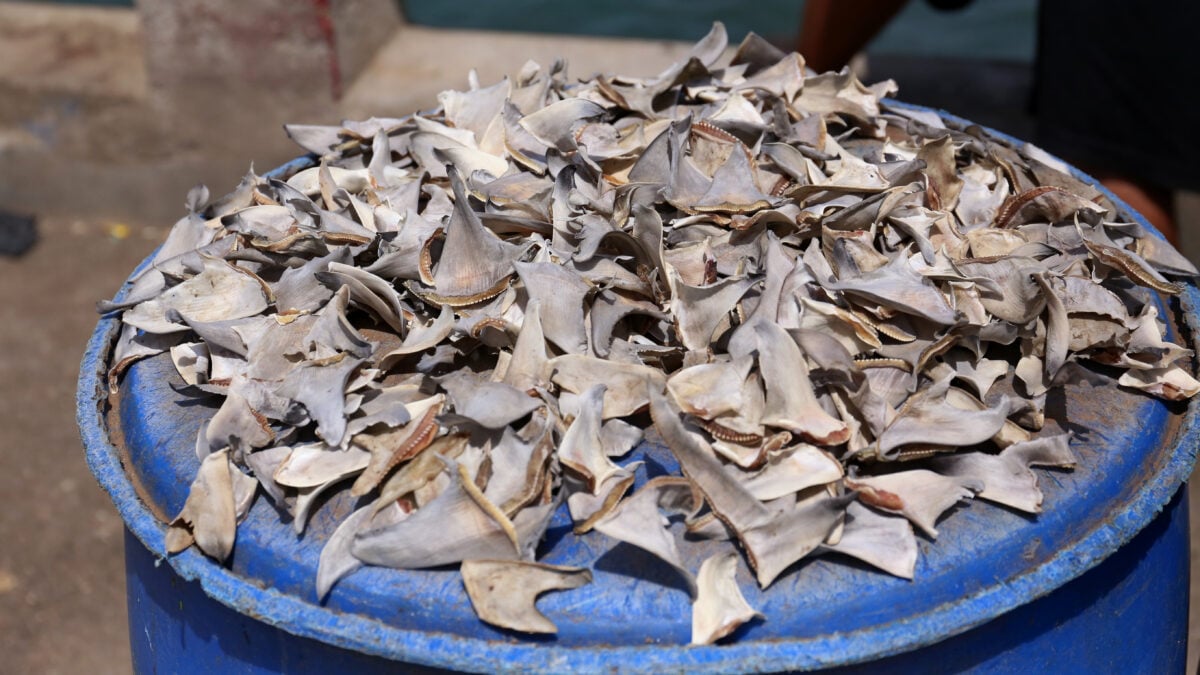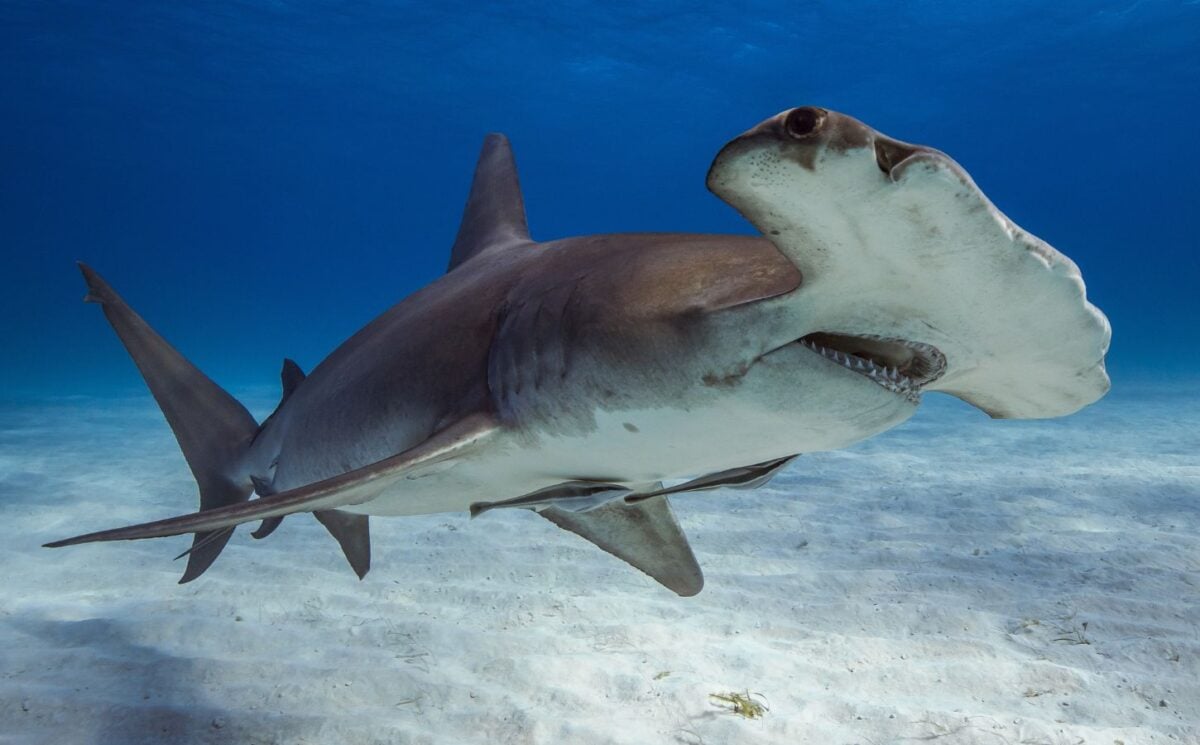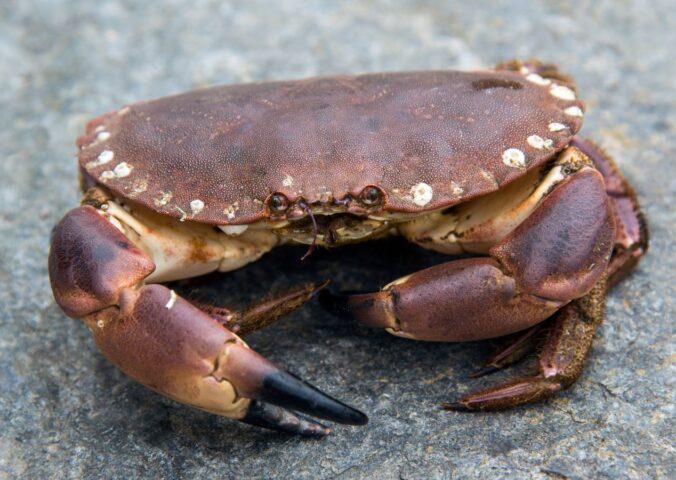A group of researchers has found that meat from “critically endangered” sharks at risk of extinction is available to buy in the US, despite bans and restrictions.
Because much of the shark meat sold in the US features generic labels, the researchers noted that customers may be unaware they are purchasing meat from illegally fished and endangered sharks. Furthermore, the team assessed at least two shark meat products that did feature specific labels but described the wrong species.
Read more: Beneath The Surface: What You Might Not Know About Sharks
The researchers analysed 30 different samples of shark meat purchased in US stores, at markets, or online. Thirty-one percent were from endangered or critically endangered species, such as the great hammerhead, scalloped hammerhead, tope, and shortfin mako shark. Ninety-three percent of the samples featured a generic label, such as “shark.” Only two samples were labeled by species, and only one of those samples was correct. The accurate product was blacktip shark, which is classified as vulnerable, while the other actually contained mako shark meat.
“The legality of selling shark meat in the United States depends largely on where the shark was harvested and the species involved, due to regulations under CITES and the Endangered Species Act,” said Savannah Ryburn, a researcher at the University of North Carolina at Chapel Hill and one of the study’s authors. “However, by the time large shark species reach grocery stores and markets, they are often sold as fillets with all distinguishing features removed, making it unlikely that sellers know what species they are offering.”
Frontiers in Marine Science published the team’s results earlier this month.
Read more: How Many Sharks Are Killed Per Year?
Meat from endangered sharks, human health, and keystone species

Sharks are ancient, and the earliest fossil records of the species predate tree fossils by nearly 100 million years. They are also a keystone species, which means that sharks’ presence and health have a positive impact on all life within their ecosystem.
According to the IUCN, fishing and overfishing are driving more than one-third of all sharks and rays towards extinction. If sharks did become extinct, much of the marine flora and fauna that shares their ocean environments would also face extinction.
In addition to the danger overfishing and mislabeling pose to endangered sharks, the researchers behind the new study noted that meat from at least three of the species they recorded – the great hammerhead, scalloped hammerhead, and dusky smooth-hound shark – contains high levels of mercury, methylmercury, and arsenic.
Human consumption of these heavy metals can cause brain damage, cancer, and other negative health outcomes.
Read more: Juicy Marbles & Friends Launches Whole-Cut Plant-Based Salmon






